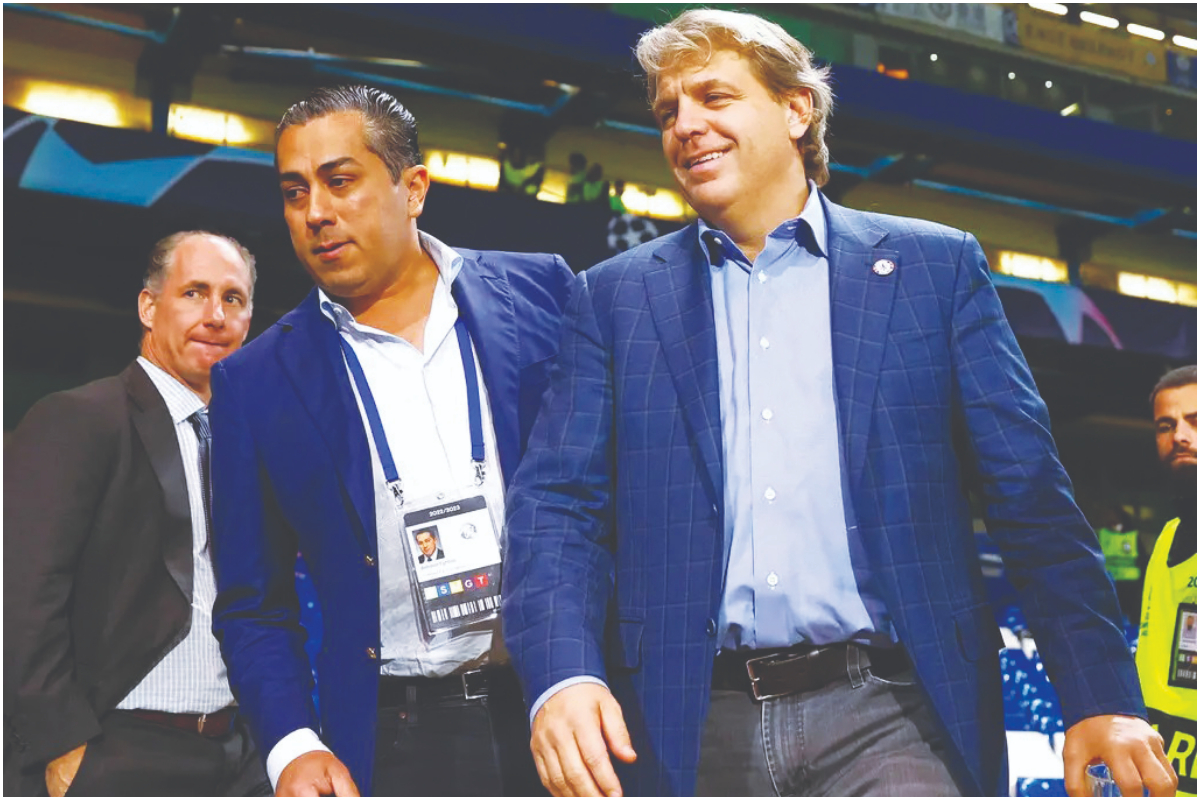
Money-madness
Premier League club’s £2.8 billion spending dwarfs other leagues
Premier League clubs spent a record £815 million ($1 billion) in a frantic January transfer window — nearly double the previous highest figure, according to sports finance experts Deloitte.
Deals came thick and fast in the final hours of the window on Tuesday, with big-spending Chelsea setting a new British record in signing Argentina’s World Cup winner Enzo Fernandez from Benfica for 121 million euros ($132 million, £106.8 million).
The gross spend was 90 percent higher than the previous record (£430 million in 2018) and almost triple the previous January window.
Clubs from the English top flight also set a record for net transfer expenditure during a January window of £720 million.
Combined with the record £1.9 billion spent during the summer transfer window, Premier League clubs have splurged £2.8 billion during the 2022/23 season, a new all-time high.
Deadline-day expenditure by Premier League clubs of £275 million is also a new record for January, obliterating the previous mark.
Five of the top six revenue-generating clubs accounted for more than half of the total gross spend, with Chelsea responsible for more than a third of the total league expenditure.
The Premier League’s huge spending is backed by record revenues for broadcasting rights for the 2022-2025 cycle.
For the first time, international TV rights sales outstripped the figure for the UK domestic market, taking the total to more than £10 billion over three years.
Premier League clubs blew their European rivals out of the water, accounting for 79 percent of total spending across Europe’s major football leagues in January — the highest proportion ever reported.
Transfer spending fell across the rest of Europe’s “big five” leagues from 396 million euros in the January 2022 window to 255 million euros.
Race for talent
Tim Bridge, lead partner in Deloitte’s Sports Business Group, said Premier League spending was “beyond anything that we’ve seen before”.
“It is a clear indication of talent acquisition being core to Premier League clubs’ business strategies,” he said.
“In securing the best available talent, clubs hope to improve results on the field, which in turn will enhance the appeal of the Premier League and further cement its position at the very top of world football.”
But Bridge warned there was a fine balance between prioritising success on the pitch and maintaining financial sustainability and also highlighted the lack of domestic business.
More than 85 percent of Premier League clubs’ gross spending was directed towards acquiring players playing outside the UK.
Bridge said the decline would be of concern to lower-tier clubs in England and could further fuel the debate around a more even distribution of finances.
Calum Ross, assistant director in the Sports Business Group, said many clubs across Europe had sold valuable talent as they sought to prioritise financial stability.
“The rest of the big five leagues in Europe have had more subdued spending power, likely impacted by negative growth in their broadcast rights in the most recent cycle, while at the same time, some European clubs are still recovering post-pandemic,” he said.
Brain drain to England
Another transfer window of record-breaking spending in the Premier League has led to more soul-searching around Europe, as clubs on the continent are unable to stop the drain of talent to England.
Chelsea purchased Argentina’s Enzo Fernandez from Benfica for an English record of 121 million euros.
But he was just one of seven players to move to Stamford Bridge from clubs elsewhere in Europe, and Chelsea were not the only ones spending big.
Of the top 20 January transfers according to specialist site Transfermarkt, only two did not involve Premier League clubs — one was Marseille selling Brazil midfielder Gerson back to Flamengo, and the other was the French side buying Portuguese striker Vitinha from Braga in a 32 million-euro deal.
There were no major moves involving any of the continent’s powerhouses, with not even Paris Saint-Germain getting out their chequebook — they failed in an attempt to sign Hakim Ziyech on loan from Chelsea.
The spending of the London outfit under new American owner Todd Boehly’s consortium was watched particularly closely by Borussia Dortmund, who will be their opponents in the last 16 of the Champions League this month.
“It is very wild, you just have to say that. They are running in their own race,” Dortmund sporting director Sebastian Kehl told Sky Germany.
The Premier League’s financial dominance is fuelled by domestic and international television revenues which are far higher than in any of the other so-called Big Five European leagues, in Spain, Italy, Germany and France.
Eleven of the top 20 revenue-generating clubs in the world last year are from the Premier League, according to Deloitte’s latest Football Money League.
The rest now struggle to keep up, and La Liga has also accused Premier League sides of being “doped” because of phenomenally wealthy shareholders putting in additional money to then spend on new players.
“Essentially they are ‘doping’ the club. They are injecting money not generated by the club, for it to spend, which puts the viability of the club at risk if the shareholder leaves,” claimed Javier Gomez, La Liga’s corporate director general, in a video defending their own stringent financial rules within Spain’s top flight.
“In our opinion that is cheating because it drags down the rest of the leagues.”
Still no guarantee of success
Gomez said La Liga would continue to demand new financial rules be applied by UEFA, whose own Financial Fair Play regulations have not been able to halt the increasing polarisation in top-level European football.
Others have highlighted the increasing spending power of more modest English clubs.
Take Bournemouth, who had never played in England’s top flight before 2015 and whose stadium has a capacity of little over 11,000.
In January they signed Dango Ouattara from French side Lorient in a 27 million-euro deal and then added Illia Zabarnyi, an outstanding defensive prospect at Dynamo Kyiv, for a similar fee.
They were not the Cherries’ only signings either.
“While Europe is wondering about the dangers of the Super League, we need to acknowledge that there is already a super league and it makes the rules,” said an editorial in Italy’s Corriere dello Sport.
“The real strength of the Premier League is the spending capacity of the little clubs: Bournemouth, who are fighting for safety, have the resources and audacity to ask Roma for (Nicolo) Zaniolo before flippantly knocking at Sassuolo’s door for (Hamed) Traore and unloading 30 million euros.”
So is there still hope for the rest of Europe?
They will keep producing more outstanding players and there is no guarantee Premier League teams will sweep the European trophies this season.
After all, they did not win any last year, when Real Madrid beat Liverpool in the Champions League final.
“I don’t think this will end the competitiveness of European competitions,” insisted Real’s former Chelsea coach, Carlo Ancelotti.
“Last year the Champions League was not won by an English side, nor the Europa League… (but) it’s true internally the Premier League will be more competitive and entertaining.”
Catch all the Champion News, Breaking News Event and Latest News Updates on The BOL News
Download The BOL News App to get the Daily News Update & Live News.












 Read the complete story text.
Read the complete story text. Listen to audio of the story.
Listen to audio of the story.